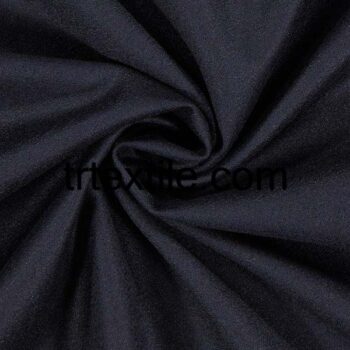Suits are a staple in any professional’s wardrobe, and the fabric of a suit plays a crucial role in its overall look and feel. The right fabric can make or break a suit, so it’s important to understand the different types of suit fabrics available and how they can affect the overall look and feel of your suit.
One of the most popular suit fabrics is wool. Wool is a versatile fabric that is known for its durability, breathability, and ability to drape well. It is also a natural insulator, making it a great choice for both warm and cold weather. Wool suits are often made from a blend of different types of wool, such as merino, cashmere, or tweed, each with its own unique characteristics.
Another popular suit fabric is cotton. Cotton suits are lightweight, breathable, and comfortable, making them a great choice for warmer weather. Cotton suits can also be easily washed and are less prone to wrinkling than wool suits. However, cotton suits may not drape as well as wool suits and can sometimes look more casual.
Linen is another popular choice for suit fabric, especially in warmer climates. Linen suits are lightweight, breathable, and have a relaxed, casual look. However, linen suits are prone to wrinkling and may not hold their shape as well as wool or cotton suits.
Silk is a luxurious fabric that is often used for special occasion suits. Silk suits have a smooth, lustrous finish and drape well, making them a great choice for formal events. However, silk suits are delicate and may require special care when cleaning.
Polyester is a synthetic fabric that is often used in more affordable suits. Polyester suits are durable, wrinkle-resistant, and easy to care for. However, polyester suits may not breathe as well as natural fabrics and can sometimes look cheap or shiny.
When choosing a suit fabric, it’s important to consider the season, the occasion, and your personal style. Wool suits are a classic choice that can be worn year-round, while cotton and linen suits are better suited for warmer weather. Silk suits are great for formal events, while polyester suits are a more affordable option for everyday wear.
In addition to the type of fabric, the weight and weave of the fabric can also affect the look and feel of a suit. Lighter weight fabrics are better suited for warmer weather, while heavier weight fabrics are better for colder weather. The weave of the fabric can also affect the texture and appearance of the suit, with options ranging from smooth and sleek to textured and more casual.
In conclusion, the fabric of a suit is an important factor to consider when choosing a suit. Each type of fabric has its own unique characteristics and can affect the overall look and feel of the suit. By understanding the different types of suit fabrics available and how they can impact the look and feel of a suit, you can make an informed decision when selecting the perfect suit for any occasion.




